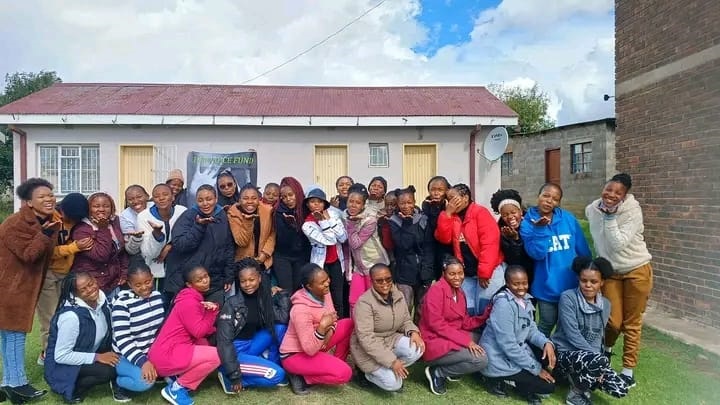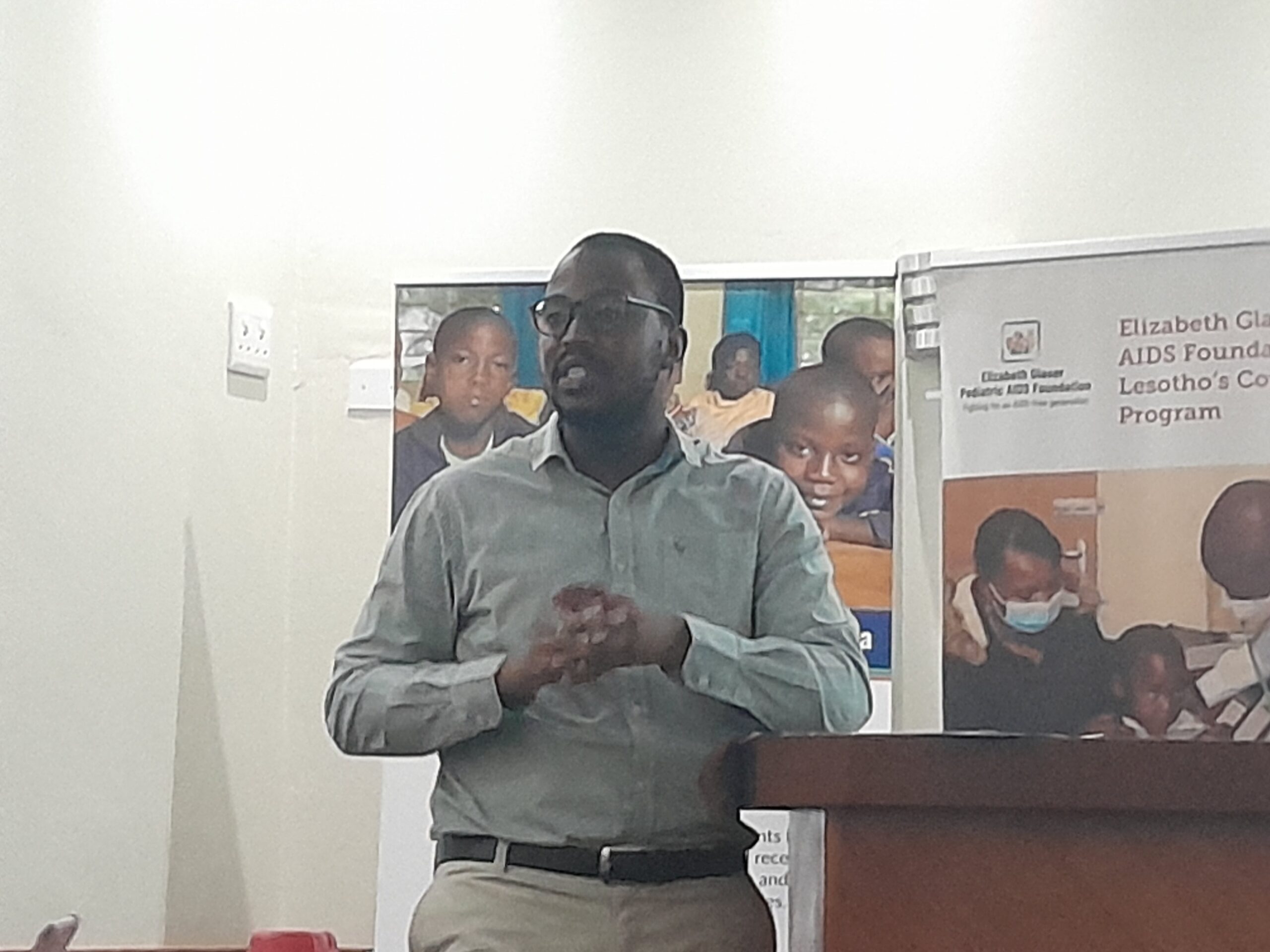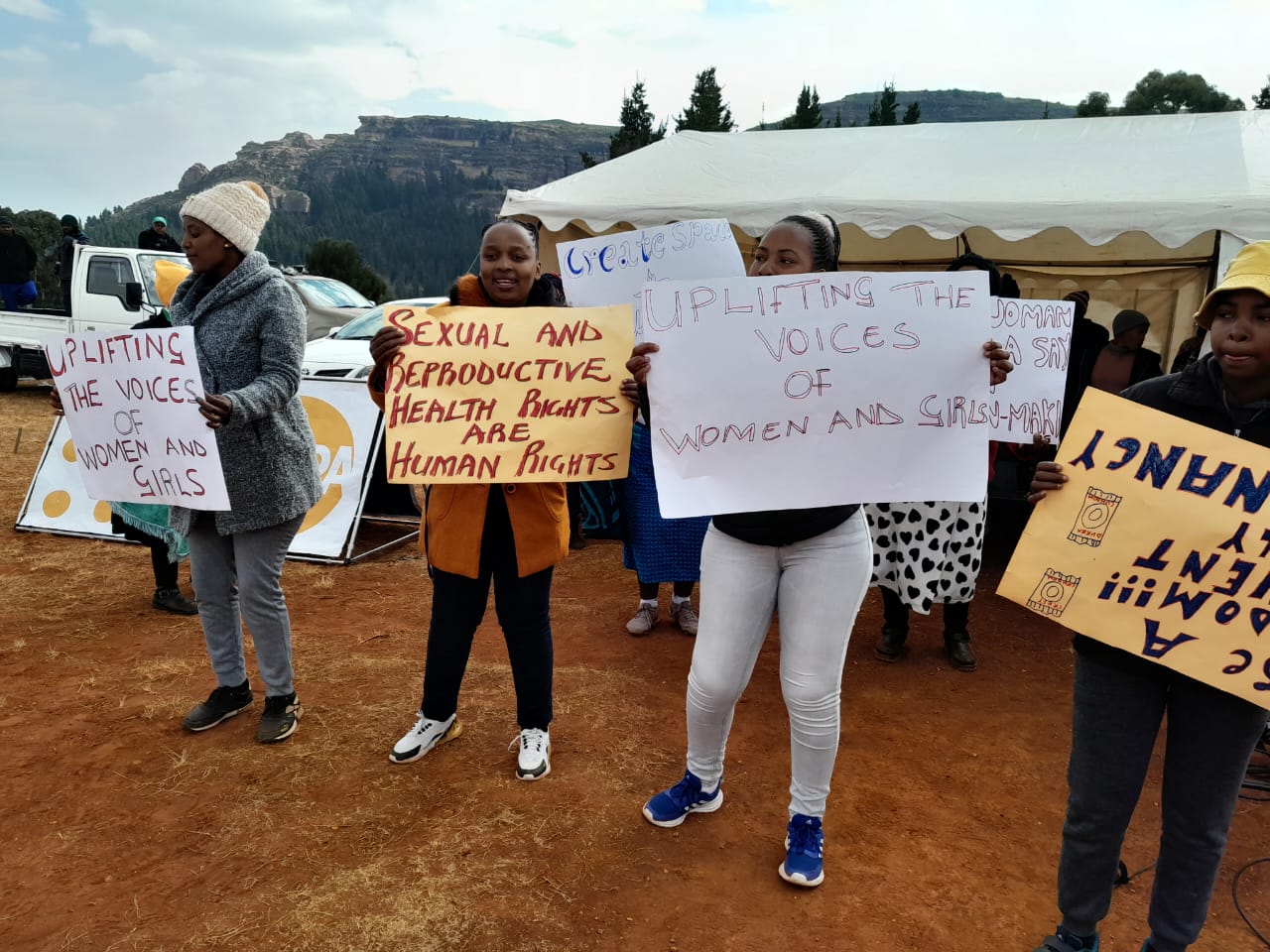Ntsoaki Motaung
Adolescent girls and young women with disabilities recently discussed challenges they perceive as barriers that restrict their access to health services.
This happened during an event held by the Global Fund – an international organisation that aims to attract, leverage, and invest additional resources to end the epidemics of HIV/AIDS, tuberculosis, and malaria to support the attainment of the Sustainable Development Goals (SDGs).
The adolescent girls and young women’s representative, Mpeo Kherehloa, told the meeting that it would be helpful to have persons with disabilities as workers at the health facilities.
This, according to Kherehloa, will ensure that other people with disabilities are taken care of and receive equal access to quality healthcare services.
She stressed that there was a need for health facilities to have sign language interpreters.
“Sometimes we fail to access health services we need because we cannot understand each other, the disabled person and the health professional,†she said.
She indicated that the health facilities infrastructure should also cater to people with disabilities, adding that it should be made easy for them to move around the facilities.
“We also want to be considered in information dissemination. There are people with disabilities who are deaf and they need special communication instruments, they should also be considered, not only the people who can read or listen to a radio,†she said.
Morephe Santi from the Lesotho Country Coordinating Mechanisms Board (LCCM), also from the Disability Equity Board, said adolescent girls and young women were amongst the groups at highest risk for HIV infection.
Santi mentioned that the national HIV strategic plan aimed to provide health HIV services to all groups of people including adolescent girls and young women with disabilities.
He said after collecting the views of the members of the public, the government’s plans and strategies would also be studied to identify areas that could be funded by the Global Fund for the betterment of all groups of society.
He said when all groups of people had been consulted a grant proposal would be written which would state where the government needed assistance.
Nthabeleng Ntšekalle from Her Voice Ambassador for Lesotho said the country gets about $70 million from the Global Fund targeted towards addressing HIV and AIDS issues as well as TB.
Ntšekalle said it was important that adolescent girls and young women especially those with disabilities were included in decision-making to ensure they are not at risk of being infected with HIV or TB.

Your Trusted Source for News and Insights in Lesotho!
At Newsday Media, we are passionate about delivering accurate, timely, and engaging news and multimedia content to our diverse audience. Founded with the vision of revolutionizing the media landscape in Lesotho, we have grown into a leading hybrid media company that blends traditional journalism with innovative digital platforms.












